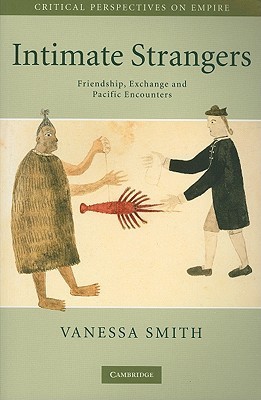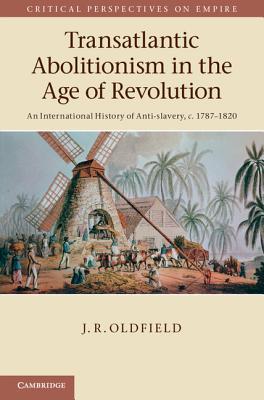


Books in series

Intimate Strangers
Friendship, Exchange and Pacific Encounters
2010

Scandal of Colonial Rule
Power and Subversion in the British Atlantic during the Age of Revolution
2012

Violence and Colonial Order
Police, Workers and Protest in the European Colonial Empires, 1918-1940
2012

Transatlantic Abolitionism in the Age of Revolution
An International History of Anti-slavery, c.1787–1820
2013

Colonization and the Origins of Humanitarian Governance
Protecting Aborigines across the Nineteenth-Century British Empire
2014

The Cultural Politics of Obeah
Religion, Colonialism and Modernity in the Caribbean World
2015

Imperial Underworld
An Escaped Convict and the Transformation of the British Colonial Order
2015

To Be Free and French
Citizenship in France's Atlantic Empire
2017

The Anticolonial Front
The African American Freedom Struggle and Global Decolonisation, 1945–1960
2017

Taking Liberty
Indigenous Rights and Settler Self-Government in Colonial Australia, 1830–1890
2018

Imperial Emotions
The Politics of Empathy across the British Empire
2019

England Re-Oriented
How Central and South Asian Travelers Imagined the West, 1750–1857
2020
Authors

Dr. Martin Thomas is a British historian and academic. He studied Modern History at Oxford University, graduating in 1985. He returned to Oxford for his graduate studies, earning his doctoral degree (D.Phil.) in 1991. Professor Thomas began his academic career in 1992 at the University of the West of England (Bristol). In 2003 he accepted a post in the history department of the University of Exeter. He is also the director of the Centre for the Study of War, State and Society. Professor Thomas is considered one of the leading academic specialists on French colonial history, colonial intelligence & security services, and the history of decolonisation.

Alan Lester is an English historian, historical geographer and author who has worked for Sussex University since 2000. He was appointed Professor of Historical Geography in 2006. He is known for his research on imperial networks, colonial humanitarianism and imperial governance. In Colonisation and the Origins of Humanitarian Governance he and co-author Fae Dussart analysed the ways in which men considering themselves humane oversaw the destruction of Indigenous societies. His book Ruling the World: Freedom, Civilisation and Liberalism in the Nineteenth-Century British Empire, he examined how imperial governance worked 'everywhere and all at once' across the British Empire at key moments during the nineteenth century. Lester gave the Distinguished Historical Geographer Lecture at the 2022 Association of American Geographers annual conference. He is co-editor of the Manchester University Press' Studies in Imperialism research monograph series. Lester has been described as “the pioneer of the idea” of “a key concept much used in recent ‘new imperial history’ writing … that of the imperial network”. Lester has written of his concern at the recent politicisation of imperial history, and critiqued British academic Nigel Biggar's representation of colonialism.